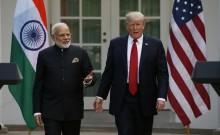
The lunar Horse year has galloped its way to China, seemingly with a purpose to induce a renewed zeal in the political sphere as well. President Xi Jinping's greeting of 'may all go well' tended to suggest that the year of the wooden horse could perhaps bring more comfort for the land which is currently embroiled in a row with Japan over some island territories in the East China sea.
"I wish good health, happiness for you and your families and may all go well with you," Xi said according to Xinhua News agency, as he hoped the Chinese will continue to work hard and strive for prosperity and a better life. But it is quite probable that the celebration will be short-lived as the attention will quickly shift towards the conflict with Japan.
Even as a photograph of a happy looking president appeared in Xinhua with a greeting passed on, it is more than easy to intercept that the vibes inside the country show a tensed nation involved in a semblance of celebration, while the conflict with Japan looms large. The New Year comes only days after its rival went to the extent of changing the school modules or syllabus of secondary classes to claim the disputed Diaoyu Island, known as Senkaku in Japan.
As the country celebrated the New Year Day, Chinese media dwelled on a list of unresolved problems that China is facing particularly in relation with Japan.
Chinese media noted that the War of Jiawu, or the first Sino-Japanese War of 1894, and the 'Horse Year' starting from 31 January are both 'Jiawu Years' in the Chinese lunar calendar. It is an indication that this year could mark another major episode of conflict with Japan, if strange astronomical coincidences are any good clues to go by.
It can be recalled, as the Xinhua News Agency does, that in 1894, Japanese navy defeated the force of the former Chinese Qing Dynasty, marking the first time that the nation was outdone by Japan in a war. Although it could be perceived as one isolated case of a curious lunar coincidence, subtle indications suggest that there are more troubles to come for China this year.
Interestingly, Prime Minister Shinzo Abe of Japan and German Chancellor Angela Markel were both born in 1954, another year of 'Jiawu'.
"Abe and German Chancellor Angela Markel represent entirely different attitudes towards their countries' pasts. Germany has won approval from many for the sincerity its leaders have shown, but Japan still has a long way to go," the agency said.
"In the Year of Horse, the Sino-Japanese relationship will require leaders from both sides to demonstrate wisdom and understanding," it added. But the big question is, will that ever happen?
In another article by Hong Kong's Ming Pao, similar concerns are raised that Japan would perhaps try to "revive" its victory of the first war fought 120 years ago by escalating the islands row into a major war.
"If Japan vainly attempts to revive the glory of 120 years ago, the Chinese nation led by the Chinese Communist Party must do everything possible to make the greatest efforts to ensure that Japan can no longer prevail and in turn wipe out a century of shame," it said.
Japan has already shown signs of doing everything it can to secure the islands to itself. It has planned to beef up its military prowess within the next five years and has left no stone unturned to provoke China with reminders of its military might, as indicated by Abe's recent visit to Yasukuni shrine which is seen as a symbol of Japanese aggression. It now remains to be seen if the indications of the Chinese horoscope would come true and if the conflict snowballs into a major war.














